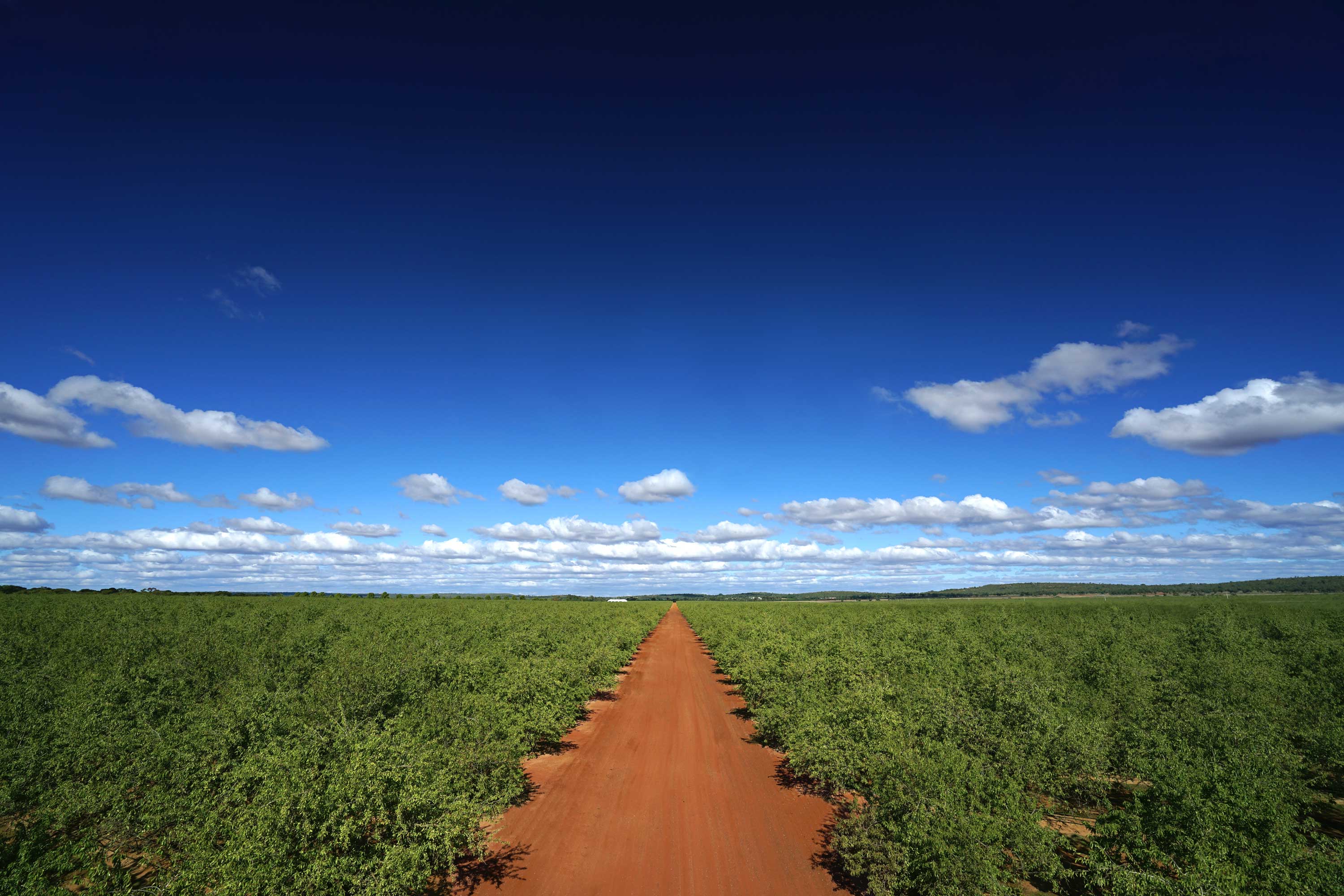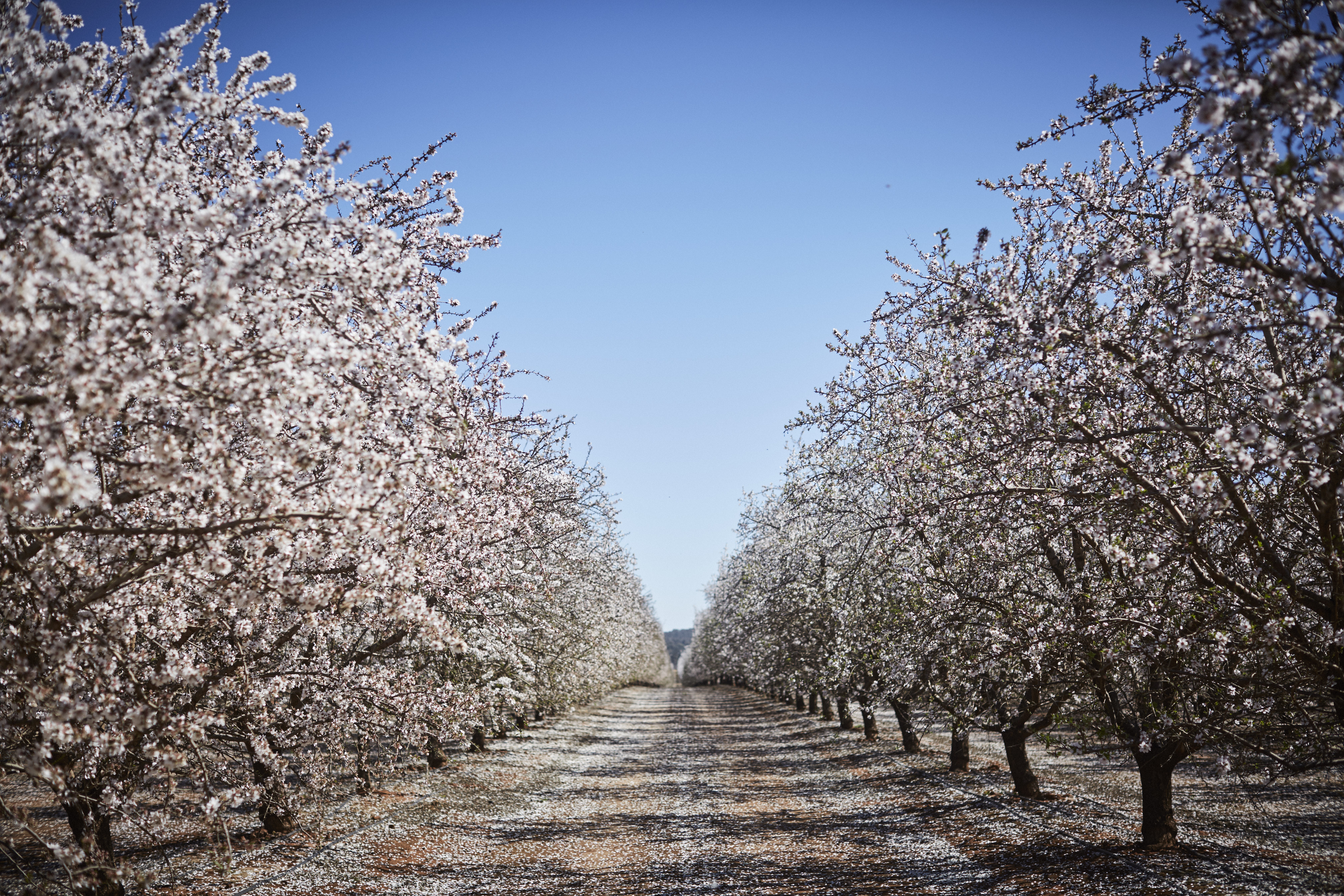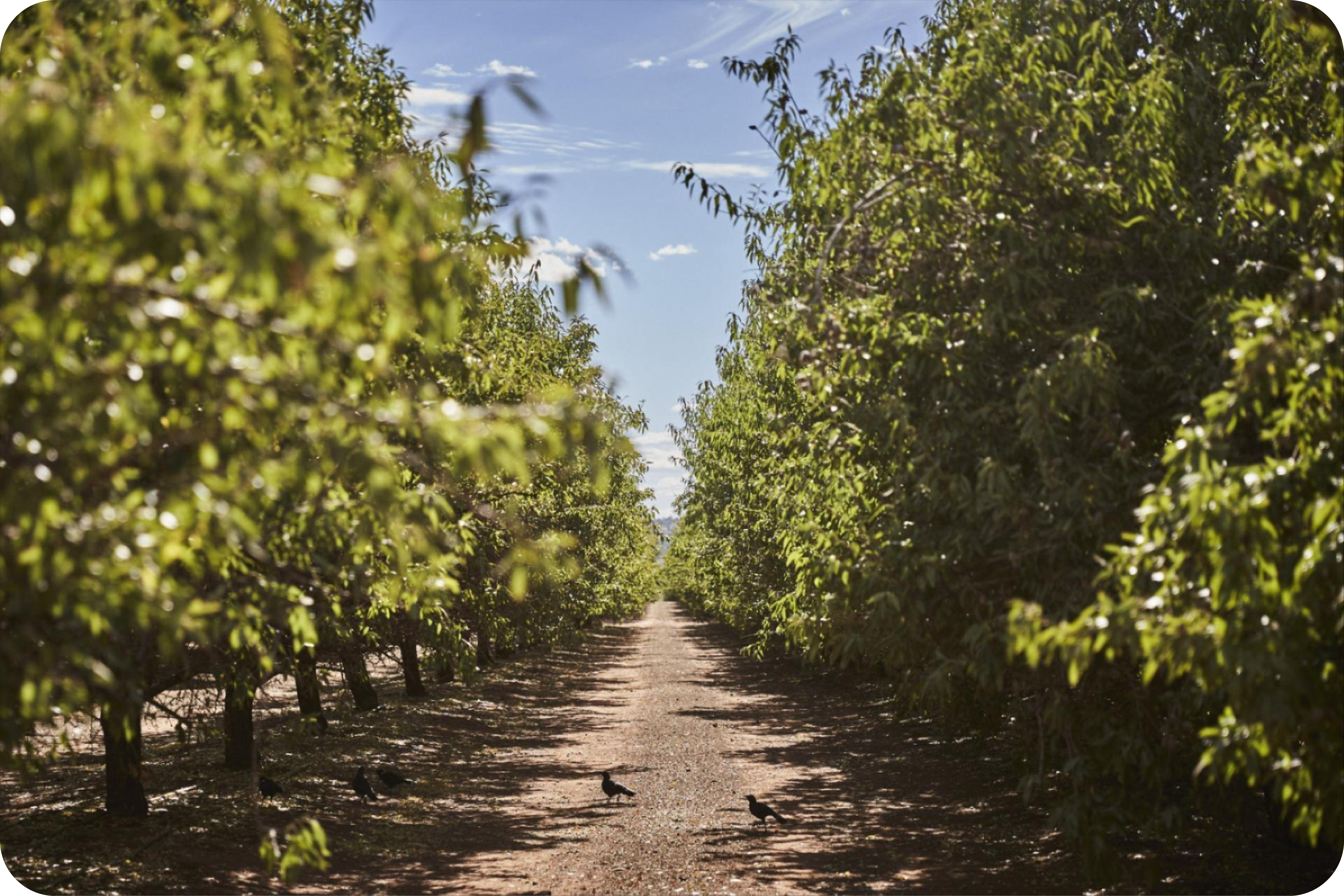When people think of agriculture’s impact on the environment, the conversation often centres on concerns about carbon footprints, soil depletion and water use. However, more farmers are embracing a new vision - one that sees agriculture not as part of the problem, but as part of the solution.
This is known as regenerative agriculture, a method of farming that aims to restore and revitalise ecosystems while producing high-quality food. At Mandolé Orchard, we believe almonds can be a shining example of this approach.
Here’s how almond farming is stepping up as a powerful ally in the fight against climate change and soil degradation.
Can Farming Fight Climate Change?
The short answer is: Yes!
By planting and maintaining almond orchards, these trees are effectively capturing and storing carbon dioxide in their wood and roots. Carbon dioxide is a greenhouse gas that contributes to climate change.
Studies in California, the world’s largest producers of almonds, have shown that almond trees store one of the highest amounts of carbon per acre compared to other fruit and nut trees: 18 metric tons of carbon per acre per year.
Here in Australia, we conservatively have roughly 150,000 acres of almond orchards nationwide. Together, they capture an estimated 2.76 million metric tons of carbon.
To put that in perspective, that’s equivalent to what you’d save over the course of a year if you:
- Took 2.2 million cars off the road
- Grounded 288 Boeing 737s (around four times Qantas’ entire 737 fleet size)
- Shut down 2.6 coal-fired power plants
These staggering figures illustrate how almond farming can help meet our greenhouse gas reduction goals and mitigate climate change.
Nature’s Carbon Sink
Almond trees act as nature’s carbon sink. They draw CO₂ out of the air and store it in their wood, branches, and roots. Orchards function like mini forests for their 25-year lifespan.
At Mandolé Orchard, our trees remain undisturbed in the soil, growing year-round, locking away carbon as they flourish.This long-term carbon storage is vital because it helps stabilise the climate whilst we work on reducing fossil fuel emissions.
Almonds also boast a relatively small carbon footprint compared to other foods like beef or dairy, thanks in part to the carbon-capturing abilities of the trees themselves and the potential to offset emissions by using almond co-products - such as shells and hulls - in innovative ways (e.g., animal feed or natural mulch).
A Low-Carbon Food Choice
Even when considering the emissions from irrigation systems, fertilisers, and farm equipment, almond production stands out for its sustainability potential.
A life-cycle assessment from California indicates that over 50% of almonds’ carbon footprint is offset by the carbon captured in the orchard and by using almond coproducts wisely.
Further improvements in irrigation technology, fertiliser application and other farming practices can make almond farming carbon neutral or even carbon negative in the future.
To top it off, almonds travel well thanks to their 2+ year shelf life. Almonds are often shipped by sea, a mode of transportation that produces significantly fewer emissions than air freight.
Whole Orchard Recycling: Capturing Even More Carbon
The concept of whole orchard recycling is a game-changer.
At the end of an almond orchard’s productive life, farmers grind up the entire tree - including trunks, branches, and roots - and incorporate the material back into the soil.
This process:
1. Extends carbon sequestration: The carbon stored in the wood remains in the soil rather than being released into the atmosphere.
2. Builds soil health: Adding organic matter improves soil structure, enhances water retention, and boosts nutrient availability for the next generation of crops.
3. Regenerates the farmland: By returning organic material to the earth, the orchard effectively replenishes the soil, reducing the need for synthetic fertilisers over time.
Recent data shows that farms practicing whole orchard recycling can sequester an additional 2.4 tons of carbon per acre. Each acre is equivalent to living car-free for an entire year - a tangible, planet-positive impact.
Almond Orchards as Regenerative Systems
Regenerative agriculture generally refers to farming methods that restore ecosystems, nurture the soil, and capture carbon - rather than depleting these resources.
Almond orchards fit many of the core regenerative principles:
- No Tillage: Almond orchards typically remain no-till for their 25-year life, preventing soil disturbance and erosion.
- Year-Round Roots: Because almonds are perennial trees, their roots are always active in the soil, aiding in carbon sequestration.
- Orchard Recycling: Incorporating the remains of old orchards back into the land adds organic matter and sequesters carbon in the soil.
- Composting: Around 30% of farms use compost, further enriching soil and capturing more carbon.
- Biodiversity: Over 42% of almond orchards maintain native plant cover between rows, improving soil quality and supporting pollinator health.
By following these practices, almond farmers can boost carbon capture, reduce reliance on chemical inputs, and foster greater resilience to weather extremes - key goals in sustainable and climate-smart farming.
A Bright Future for Almond Farming
At Mandolé Orchard, we see firsthand how robust and environmentally conscious almond farming can be.
By combining our traditional family-farming values with cutting-edge techniques - like water recycling, whole orchard recycling, and carefully managed cover crops - we’re helping push the industry toward a more regenerative future.
The end result? Delicious almonds that support biodiversity, sequester carbon and enrich the land for generations to come!
So the next time you enjoy a handful of almonds, or sip almond milk in your latte, remember the bigger story behind these humble nuts.
They’re part of a regenerative system that works alongside nature, helping us inch closer to our climate goals.
Indeed, almonds are more than a snack - they’re a testament to how farming can become a force for good, nurturing both the planet and the people who call it home.
Reference: This article included information and insights published in this article by California Almonds - https://www.almonds.com/why-almonds/growing-good/climate-smart
Visit our Stockists page to see where you can purchase Mandolé Orchard Almond Milk. You can also purchase our delicious Almonds and Almond Butter via our Products page.
Learn more about our Sustainability and visit Tooties Kitchen to view an incredible range of delicious almond-based recipes!
Join the Mandolé Orchard community and share your culinary creations with us! Follow us on social media and tag your dishes with #MandoleOrchard and #AlmondMilkCreations.



